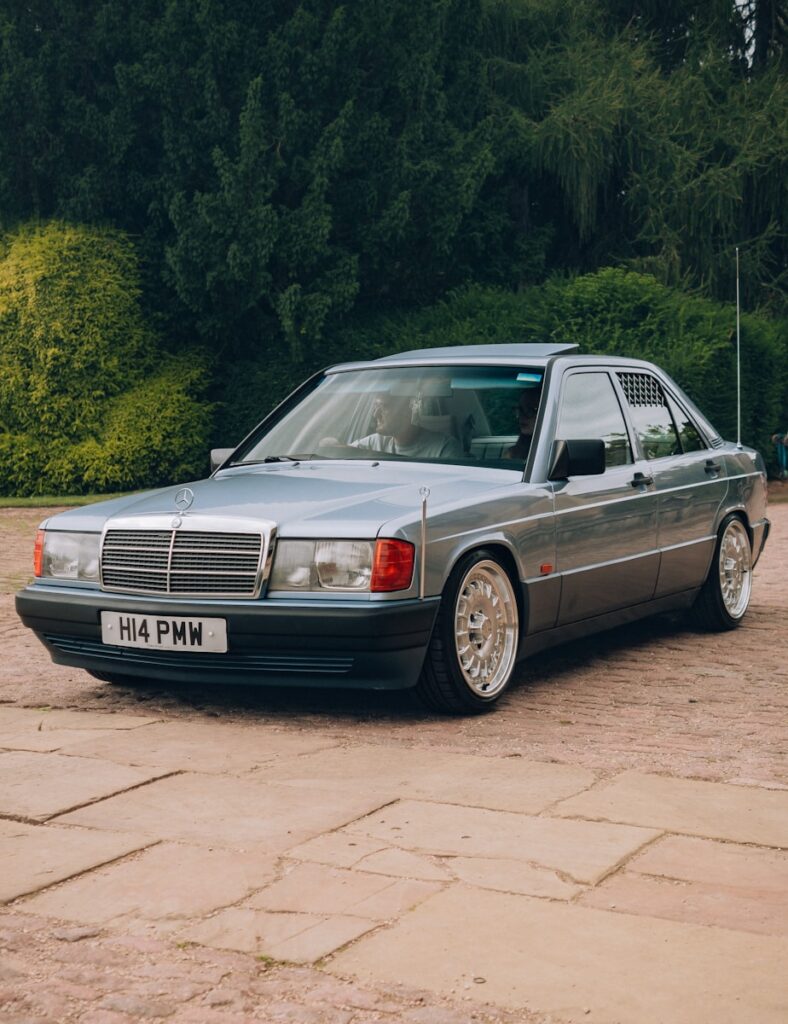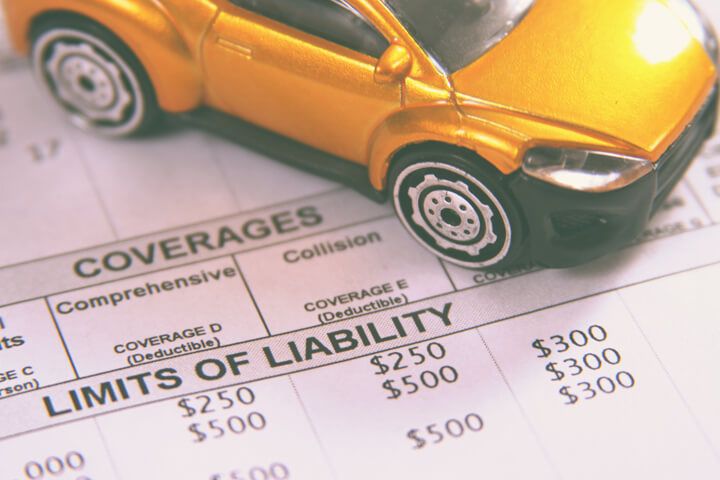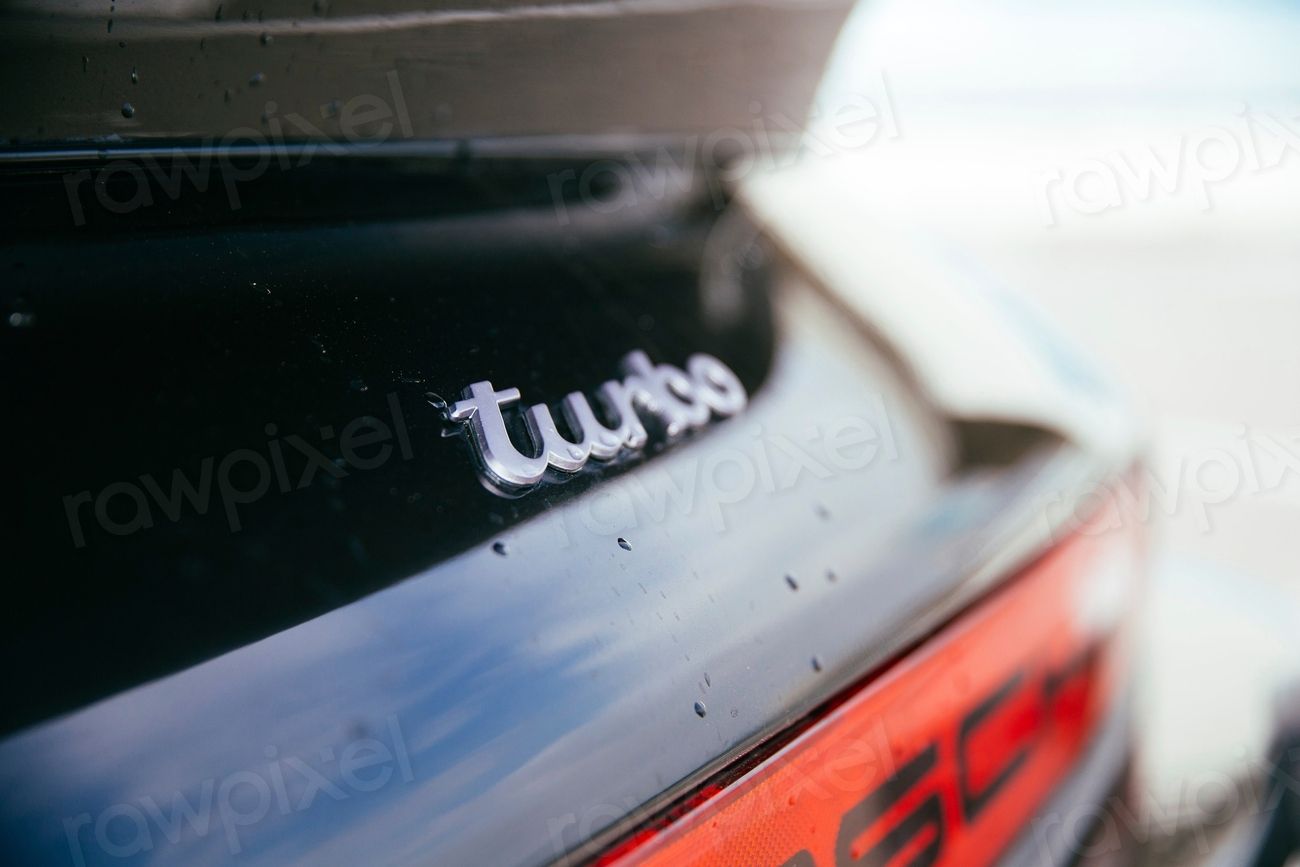
The journey of car ownership often leads to a desire for personalization, a chance to make a vehicle truly your own. From boosting engine power to crafting a unique aesthetic, modifications can transform a standard ride into something special. Yet, for US-based vehicle buyers and owners, the excitement of customization often clashes with a sobering reality: these changes can drastically alter a car’s resale and appraised value. Understanding this complex interplay is not just for sellers; it’s essential for anyone looking to make informed decisions, whether you’re considering modifying your own vehicle or evaluating a modified one on the market.
Navigating the world of car modifications requires a keen eye for detail and a solid understanding of market dynamics. While modifications can enhance a car’s performance, aesthetics, or functionality, their impact on value is far from straightforward. The key lies in recognizing that what appeals to an individual owner might not resonate with the broader market or, more importantly, with professional auto appraisers. These experts are tasked with determining a car’s worth, and their assessment often hinges on factors that modified vehicles struggle to meet, potentially leading to a significantly lower top resale price.
This in-depth article will explore ten critical factors that auto appraisers strictly limit when assessing a modified vehicle’s value. We’ll delve into how modifications, from performance enhancements to aesthetic alterations, can affect buyer perception, insurance premiums, warranty coverage, and even financing options. Our goal is to empower you with the knowledge to balance personal enjoyment with practical considerations, ensuring your beloved vehicle retains as much of its financial worth as possible in the long run.

1. **Overall Impact on Resale Value**
When modifications enter the picture, the immediate question that arises is: “Do mods lower the value of your car?” The answer, more often than not, is yes, especially when considering the broader resale market. While modifications can undoubtedly personalize a car and enhance its performance or appearance for the current owner, they frequently come at the cost of reduced resale value. This impact is rooted in the fundamental disconnect between individual preference and mainstream buyer expectations.
Potential buyers, particularly those in the general market, often view modifications as a liability rather than an asset. They might fear added wear and tear on components, struggle with non-standard parts that are harder to source or maintain, or simply find that the alterations don’t align with their personal preferences. This personalization, while a joy for the modifier, becomes a significant hurdle for an appraiser attempting to assign a universal market value. The vehicle’s unique character limits its appeal, thereby shrinking the pool of interested buyers and, consequently, its potential selling price.
Auto appraisers inherently prefer vehicles in their original, factory condition. This preference stems from the predictability such cars offer in terms of performance, maintenance history, and warranty coverage. Modifications introduce an element of uncertainty; even well-intentioned changes can raise questions about long-term reliability or hidden issues. This reluctance to pay a premium for a modded vehicle is a direct reflection of the perceived risks, ultimately translating to a lower appraised and resale value for the modified car.
Read more about: Unveiling the Truth: 12 Crucial Insights About the All-Electric Porsche Taycan Every Enthusiast Needs to Know

2. **Type of Modification (Performance & Aesthetic)**
The specific nature of a modification plays a substantial role in how it impacts a car’s resale value, with performance enhancements and aesthetic changes often having distinct effects. Performance modifications, such as engine upgrades, suspension changes, or turbocharging, are designed to enhance a car’s driving experience. While some enthusiasts may indeed pay a premium for these specific upgrades, a significant portion of the buying public might view them as a liability, concerned about potential reliability issues and increased wear and tear on components.
Aesthetic modifications, encompassing custom paint jobs, distinctive body kits, or aftermarket wheels, present a different set of challenges for resale value. These changes are inherently subjective, deeply reflecting the personal taste of the original owner. While a tastefully done customization might attract a niche buyer who shares that specific aesthetic vision, overly personalized or poorly executed modifications can severely limit the pool of interested buyers. The broader market often prefers a neutral, factory-fresh appearance, making highly personalized cars harder to sell at a desirable price.
The impact of these modification types on resale value largely depends on how they align with buyer preferences and market trends. Functional additions, such as upgraded sound systems or navigation units, might appeal to a broader audience if they are high-quality and well-integrated, potentially adding value. However, excessive or outdated tech modifications might not provide the desired return on investment. Appraisers will always assess whether a modification broadens or narrows a car’s market appeal, with broad appeal generally equating to better value retention.

3. **Quality of Workmanship**
The execution of any modification, whether it’s a performance upgrade or a cosmetic alteration, is paramount to its impact on a car’s resale value. The distinction between professionally done modifications and DIY efforts can be the difference between retaining or significantly diminishing a vehicle’s worth. Professionally installed modifications are typically carried out with precision, using high-quality materials and adhering to rigorous industry standards. These often come with essential documentation, such as receipts, warranties, and certifications, which serve as crucial reassurance for potential buyers regarding reliability and safety.
When modifications are performed by accredited professionals, using reputable aftermarket parts, they are often seen as an upgrade that can add value, particularly if they align with the car’s intended use or enhance its performance without compromising its structural or mechanical integrity. For instance, a professionally installed, well-regarded suspension system or an engine tune from a renowned specialist might be viewed favorably by discerning buyers who prioritize quality and longevity. Such modifications, properly documented, can mitigate potential value loss and, in specific niche markets, even enhance appeal.
Conversely, DIY modifications, while often a labor of love, carry a substantial risk of negatively impacting a car’s value. Many DIYers lack the specialized expertise or tools to ensure modifications are safe, reliable, and aesthetically pleasing. Poorly executed DIY work—such as uneven paint jobs, improperly installed exhaust systems, or amateurish electrical wiring—raises significant red flags for appraisers and prospective buyers. These issues lead to concerns about the car’s safety, reliability, and potential hidden problems, ultimately causing significant depreciation. The absence of documentation or professional warranties for DIY work further complicates proving quality or safety, compounding value loss.
Read more about: The 12 Costly Mistakes Classic Muscle Car Restorers Make: Safeguard Your Dream Project and Your Wallet

4. **Reversibility of Mods**
The ease with which a modification can be undone is a critical factor in determining its impact on a car’s value retention. Auto appraisers and general buyers tend to favor vehicles that can be returned to their original, factory specifications without extensive effort or cost. Temporary modifications, for instance, such as removable decals or custom floor mats, can be easily reversed, leaving no lasting changes. These generally have a minimal negative impact on value, allowing future owners personalization freedom or stock enjoyment.
Conversely, permanent modifications are far more likely to diminish a car’s value precisely because they cannot be easily reversed. Structural changes like engine swaps, extensive bodywork, or significant suspension overhauls using cutting or welding fall into this category. Such irreversible changes appeal only to a specific, niche market, drastically limiting potential buyers. Even professionally done, the car’s deviation from factory specifications deters many, leading to accelerated depreciation as it loses universal appeal and original assurance.
Semi-permanent modifications, like bolt-on exhaust systems or intake kits, offer a middle ground. While removable, they may require specific tools or effort, often necessitating the reinstallation of original parts. Their impact on value is less severe than permanent changes, especially if original parts are kept and included with the sale, offering buyers the option to revert to stock. Proper documentation of these changes and the availability of original components can significantly mitigate potential value loss, offering flexibility that permanent modifications lack.
Read more about: Understanding Car Modifications: A Consumer’s Guide to Insurance, Resale Value, and Hidden Costs

5. **Market Demand and Target Audience**
Understanding who might buy a modified car, and the size of that buyer segment, profoundly influences its appraised and resale value. Modifications, by their very nature, often tailor a vehicle to specific tastes or performance needs, creating a divergence from what the broad general market typically seeks. Auto appraisers are keenly aware of this market segmentation and its implications for a car’s liquidity and price.
Mainstream buyers generally seek vehicles in their original, factory condition. They prioritize reliability, predictable maintenance costs, and the assurance of manufacturer warranties. For these buyers, a modified car introduces an element of uncertainty; even if the modifications are high-quality, they represent a deviation from the familiar. This preference for “stock” conditions means that a highly personalized vehicle, no matter how appealing to its current owner, will likely struggle to attract a wide audience, which directly impacts its potential resale value.
A distinct “enthusiast” market does exist, seeking out modified vehicles for specific performance upgrades or aesthetic touches. However, even within this niche, preferences are highly specific. A racing-oriented suspension, appealing to track enthusiasts, might be uncomfortable for daily driving, limiting its appeal even among other enthusiasts. This highly specialized demand means that while a modded car might find a buyer, negotiation power often shifts to the buyer due to limited seller options.
The crucial takeaway for owners considering modifications is to conduct a thorough cost-benefit analysis concerning market preferences. Deciding if the modification cost is worth potential resale value increases requires understanding genuinely desirable modifications within your target market, not just personal taste. Modifications aligned with popular trends or those enhancing desirability in a well-defined niche might retain value better than highly idiosyncratic changes. Ultimately, appraisers assess not just parts, but how they impact broad market appeal and potential buyer pool, often concluding personalization reduces overall market demand.
Read more about: Seriously, What Happened? 14 Major Shifts That Drove Our Once-Favorite Auto Shows Into Irrelevance (And What Came Next)

6. **Legal Compliance**
Beyond the aesthetic and performance considerations, a crucial, yet often overlooked, factor influencing a modified car’s value is its legal compliance. Automotive enthusiasts eager to push boundaries sometimes neglect the patchwork of local, state, and federal regulations governing vehicle modifications. These laws are not mere suggestions; they are stringent requirements designed to ensure safety, control emissions, and maintain public order, impacting everything from the tint level on your windows to the roar of your exhaust system or the legality of an engine swap. Non-compliance can lead to hefty fines, mandatory reversals, and even legal complications, immediately diminishing a car’s appeal and value in the eyes of an appraiser.
When a professional auto appraiser evaluates a modified vehicle, a critical part of their assessment involves scrutinizing whether all alterations adhere to applicable laws. They understand that a vehicle failing to meet these standards presents a significant liability for a new owner. Imagine a prospective buyer discovering that their dream car’s custom exhaust is illegal in their state, requiring immediate and costly replacement just to pass inspection. This uncertainty and the potential for expensive remedies drastically reduce the car’s perceived worth. Compliance extends beyond simple visual checks, often involving emissions standards, noise regulations, and safety requirements for lighting and structural changes.
Navigating this legal labyrinth requires diligence. Before embarking on any modification, it’s paramount to research local department of motor vehicle (DMV) websites, consult with specialists, or seek advice from reputable shops that understand regional regulations. For example, certain states have strict rules on how dark window tints can be, while others impose specific noise limits on exhaust systems. Ignorance of these laws is no excuse, and any illegal modification essentially burdens the car with a pre-existing defect from a resale perspective. This is why appraisers view legal compliance as a fundamental aspect of a vehicle’s marketability and value retention; a car that cannot be legally driven or easily registered is, by definition, worth less.
Read more about: Beyond the Swipe: 15 Brilliant Ways Top Influencers Turn Their Private Lives into Profit

7. **Proper Documentation**
In the realm of modified vehicles, proper documentation isn’t just a nice-to-have; it’s an absolute necessity that can significantly mitigate value loss during appraisal. Think of it as the vehicle’s resume, detailing every upgrade, every service, and every part installed. This encompasses original receipts for aftermarket components, professional installation invoices, dyno sheets proving performance gains, and any warranties associated with the modifications. The presence of comprehensive, organized documentation provides invaluable transparency and peace of mind to both appraisers and potential buyers, establishing a credible history for the vehicle’s alterations.
Without clear documentation, even the most expertly executed modifications can become liabilities. An appraiser has no way to verify the quality of parts, the professionalism of the installation, or the true performance benefits claimed by the seller. This lack of verifiable information introduces a significant element of risk and uncertainty, often prompting appraisers to err on the side of caution by assigning a lower value. High-quality documentation, conversely, allows an appraiser to understand the true investment made in the modifications and to assess whether these investments genuinely enhance the vehicle’s long-term appeal or performance.
For performance-oriented modifications, dyno charts demonstrating horsepower and torque gains, coupled with service records showing regular maintenance post-modification, are particularly powerful. For aesthetic changes, receipts from reputable body shops or custom paint specialists lend credibility. This detailed paper trail supports claims of quality and professional work, directly addressing potential buyer concerns about reliability and longevity. It also plays a crucial role if there’s ever a warranty claim or an insurance dispute, providing concrete evidence of the vehicle’s state and care.
In essence, proper documentation transforms a modified car from a speculative purchase into a verifiable investment. It empowers an appraiser to accurately factor in the value of the modifications, moving beyond mere guesswork. For owners, meticulous record-keeping is a straightforward yet highly effective strategy to protect their investment and ensure that the efforts put into customizing their vehicle don’t inadvertently diminish its financial worth. A well-documented modified car speaks volumes about the owner’s care and attention, making it a far more attractive proposition in the resale market.
Read more about: Your Essential 12-Step Action Plan: How to Effectively Dispute Credit Report Errors and Protect Your Financial Future

8. **Warranty Impact**
One of the most significant, and often most distressing, factors impacting a modified car’s value is the potential voiding or limitation of its manufacturer’s warranty. A new vehicle warranty is a cornerstone of buyer confidence, promising coverage for defects and failures for a specified period. However, manufacturers are quite clear: installing non-OEM (Original Equipment Manufacturer) parts or making modifications can, under certain conditions, nullify parts or all of this crucial protection. This consequence extends beyond the immediate ownership experience, casting a long shadow over the vehicle’s resale value, as subsequent owners lose the assurance of factory backing.
The Magnuson-Moss Warranty Act in the US does offer some protection, stating that a dealer cannot automatically void a warranty simply because an aftermarket part was used. However, the manufacturer can deny a warranty claim if they can prove that the aftermarket part or modification *caused* the failure. This often places the burden of proof on the consumer, a difficult and costly endeavor. For instance, installing an aftermarket turbocharger might be exciting, but if the engine subsequently fails, the manufacturer can argue the modification was the direct cause, refusing coverage and leaving the owner with substantial repair bills. This risk translates directly into a lower appraisal value.
Furthermore, even if an entire warranty isn’t voided, specific components or systems related to the modification may lose coverage. Upgrading your suspension system, for example, might mean that any issues arising with the shocks, struts, or related steering components will no longer be covered by the original warranty. This creates a staggered and confusing warranty landscape, where some parts are covered, and others are not, purely due to modifications. For an auto appraiser, this lack of comprehensive and clear warranty coverage is a major red flag, indicating potential future expenses and risks for any prospective buyer.
Practical advice for owners is paramount here: always consult your dealership or the manufacturer directly before making any modifications. Some manufacturers offer official performance parts that maintain warranty coverage, or they might provide specific guidelines on what modifications are acceptable. Neglecting this crucial step can lead to expensive unforeseen circumstances, making the car less desirable and significantly depreciated in the used car market. A vehicle without a full, transferable warranty is inherently less valuable than one with intact manufacturer protection, a reality appraisers consistently reflect in their valuations.
Read more about: Navigating the Used Market: The Best and Worst Acura TLX Model Years, According to Expert Analysis

9. **Insurance Coverage Implications**
Modifying a vehicle inevitably introduces a cascade of considerations for its insurance coverage, a factor that auto appraisers weigh heavily when assessing overall value. Insurance companies, by their very nature, are risk-averse, and modified cars often fall into a higher-risk category compared to their stock counterparts. This perceived increase in risk can manifest in various ways, from higher premiums to specific coverage exclusions or even difficulties in securing comprehensive insurance at all. For any buyer, and therefore for an appraiser, the cost and ease of insuring a modified vehicle are significant determinants of its overall desirability and value.
The reasons for increased insurance costs are multifaceted. Performance enhancements, such as engine tuning or suspension upgrades, can make a car faster and potentially more prone to high-speed accidents, raising the statistical likelihood of a claim. Custom cosmetic alterations, like specialized paint jobs or unique body kits, can significantly increase repair costs in the event of damage, as replacement parts are often bespoke and expensive. Furthermore, highly customized vehicles are frequently more attractive targets for thieves, further elevating their risk profile in the eyes of insurers. These factors directly lead to higher insurance premiums, which become an ongoing cost of ownership that appraisers factor into a car’s overall market appeal.
A critical obligation for modified car owners is to inform their insurance provider about *all* modifications. Failure to disclose these changes can lead to severe consequences, including the denial of a claim in the event of an accident or even the outright cancellation of the policy. Insurers need to accurately assess the vehicle’s value and risk profile to provide appropriate coverage. In some cases, standard insurers may be unwilling to cover certain extensive modifications, necessitating a move to specialty insurance companies that cater specifically to modified or classic cars. While these policies might offer better coverage for custom parts, they often come at an even higher premium, again impacting the car’s overall financial viability.
Ultimately, the insurance implications directly influence a modified car’s resale value. A vehicle that is more expensive or difficult to insure will naturally appeal to a smaller segment of the market, thereby reducing demand and potential selling price. Appraisers recognize that prospective buyers will factor in these additional ongoing costs. Transparent discussions with insurance providers, understanding policy limitations, and exploring specialty options are vital steps for owners. These proactive measures help ensure the vehicle remains adequately protected while also providing a clearer picture of its long-term financial implications, which an appraiser will undoubtedly scrutinize.
Read more about: Navigating the Surge: 12 Key Reasons Your Car Insurance Rates Are Skyrocketing in Today’s Market

10. **Financing Limitations**
The dream of owning a uniquely modified vehicle can sometimes hit a snag when it comes to financing, a reality that significantly impacts a car’s appraised and resale value. Lenders, whether banks, credit unions, or captive financing arms, primarily assess risk. Highly customized or non-original cars represent a greater unknown in terms of their true market value and long-term depreciation, making them a less appealing prospect for standard auto loans. This can lead to restrictions on financing, limiting the pool of potential buyers who might otherwise be interested in a modified car, thereby depressing its market value.
The core of the issue lies in the loan-to-value (LTV) ratio. Lenders use the LTV ratio to determine the risk associated with a loan; it compares the loan amount to the car’s appraised value. For a stock vehicle, determining an accurate market value is relatively straightforwlard using established industry guides. However, modified vehicles pose a challenge because their market value is much harder to assess reliably. Many modifications, particularly highly personalized or poorly executed ones, do not add value in the eyes of a general market appraiser, even if they were costly to install. As a result, the appraised value of a modified car might be significantly lower than the owner’s total investment, leading to a high LTV and increased risk for the lender.
This increased risk translates into less favorable financing terms for modified vehicles. Lenders may offer lower loan amounts, requiring a larger down payment from the buyer, or they might impose higher interest rates to compensate for the perceived risk. In some instances, for very heavily modified or unique vehicles, securing a traditional auto loan might become exceedingly difficult, pushing buyers toward more expensive personal loans or cash purchases. This severely limits the market for such cars, as the majority of car buyers rely on financing to complete their purchase. A car that is challenging to finance is a car that is challenging to sell at a premium.
For owners contemplating modifications, it’s crucial to understand that while a custom turbocharger or a bespoke paint job might enhance personal enjoyment, it might not translate into additional financing appeal. Appraisers will factor in the practical reality that many buyers will struggle to get a loan for a car whose value is subjective or hard to standardize. Balancing the desire for personalization with these practical financing implications is key to preserving a vehicle’s broader market appeal and ultimately its resale value. The less friction a car presents in the financing process, the wider its audience and the better its chances of retaining its worth.
The journey of modifying a vehicle is a vibrant expression of personal passion and technical ambition, a chance to sculpt a machine into a reflection of one’s driving ideals. Yet, as our deep dive has revealed, this thrilling path is paved with numerous considerations that extend far beyond the garage. From understanding the nuanced impact on overall resale value, the specific types of modifications, and the paramount importance of workmanship, to navigating the complexities of legal compliance, the necessity of meticulous documentation, the crucial implications for warranties and insurance, and the often-overlooked hurdles of financing, every decision carries weight.
Read more about: Don’t Get Trapped: 14 Lease Agreement Red Flags to Spot Before You Sign
Ultimately, the secret to maximizing your car’s value, even with modifications, lies in a strategic blend of passion and pragmatism. It’s about making informed choices that not only enhance your driving pleasure but also acknowledge the broader market dynamics and expert appraisals. By approaching modifications with a keen eye for quality, reversibility, and market alignment, backed by proper documentation and a clear understanding of legal, insurance, and financing landscapes, you can truly enjoy your customized ride while safeguarding its financial future. Drive on, knowing you’ve made smart choices that resonate with both your heart and your wallet!



